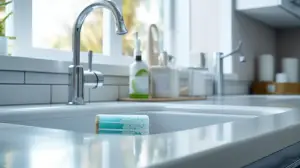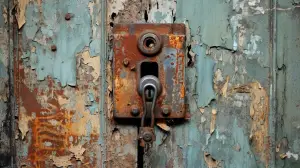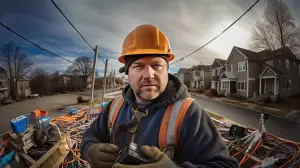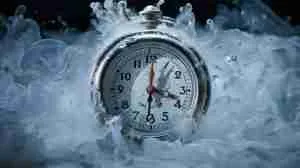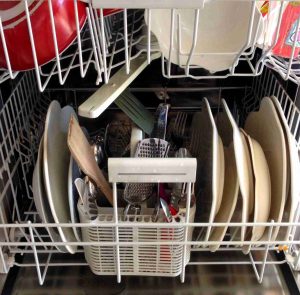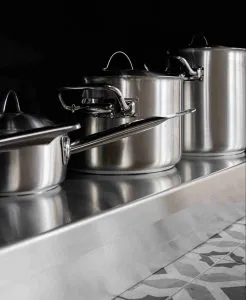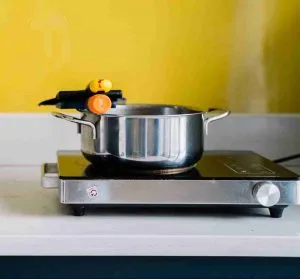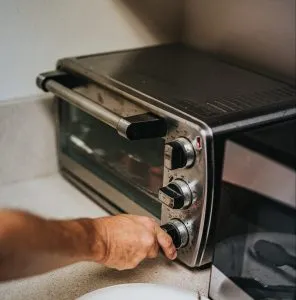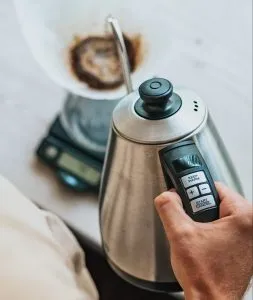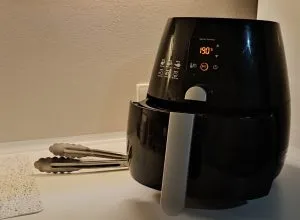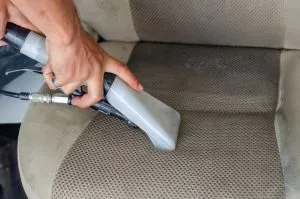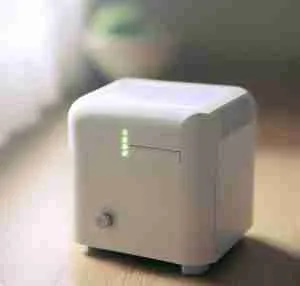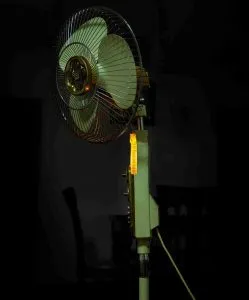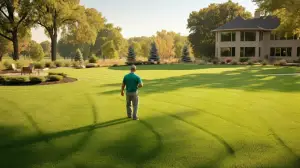Contents
ToggleKey Takeaway:
- Factors such as the make of the garage door opener, known issues associated with the brand, installation date, frequency of maintenance and servicing, climate conditions, frequency of use, and damage to the opener can all impact the lifespan of a garage door opener.
- There are various tips that can help extend the lifespan of a garage door opener, including conducting a visual inspection of various components, lubricating moving parts, performing the reversal test, proper balancing of the door, keeping the garage interior free of objects that might damage the opener, and maintaining a cool, dry interior.
- Signs of a failing garage door opener can include a slow-moving or detached opener, unusual noises coming from the opener, erratic opening or reversal patterns, and a visibly rattling garage door opener. Consulting with a garage door professional can help determine when to consider replacement and find suitable options for your door, budget, and other considerations.
Factors That Determine a Garage Door Opener’s Lifespan
As a homeowner, you may wonder what factors determine the lifespan of your garage door opener. There are several things to consider when it comes to the longevity of your opener. The brand and known issues associated with that brand can play a big role in how long your opener will last. How long ago your opener was installed and how frequently it’s been maintained can also impact its lifespan. Climate conditions and frequent use can put additional strain on the opener, contributing to wear and tear. And, of course, any damage to the opener can shorten its lifespan significantly. Let’s explore each of these factors in more detail to gain a better understanding of what leads to a longer-lasting garage door opener.
Make and known issues associated with the brand
The brand and its associated issues greatly affect the lifespan of a garage door opener. Different makes can have varying durability and reliability levels. Some brands may have known issues that can cause the opener to fail prematurely, while others might reinforce their longevity with great warranty coverage. Here are some tips on how to manually open a garage door when it fails prematurely.
| Brand | Known issues |
|---|---|
| LiftMaster | Sometimes requires an expensive replacement of logic board if it fails. |
| Chamberlain | The chain drive version tends to generate noise during the operation. |
| Craftsman | The sensors might be misaligned causing the doors not to close properly. |
One important consideration when selecting a product is to look for products backed by renowned manufacturers offering quality customer care. Although the makes alone do not determine the lifespan of a garage door opener, choosing well-established brands with good track records can impact their performance positively. To extend a garage door opener’s lifetime, perform visual inspections frequently, use lubrication to keep moving parts smooth, balance it properly so that it operates evenly, conduct reversal tests periodically, avoid putting large objects on top of openers which could damage them, and keep the interior cool and dry are some of the ways. Here’s to hoping your garage door opener outlasts your ex’s last relationship – let’s talk installation dates.
Installation date
The duration of a garage door opener’s lifespan can be highly influenced by several factors, one of them being the installation date. It is essential to consider how long ago the garage door opener was installed because this gives an idea of how much wear and tear it has undergone.
If a garage door opener has been installed for over ten years, then it may start to display signs of aging such as grinding noises or slower operation. On the other hand, if it’s relatively new, then it should still operate optimally.
However, the quality of installation also matters and affects its longevity. If properly installed, a good garage door opener with regular maintenance can last up to 15 years or longer without experiencing many problems due to natural wear and tear.
It is recommended that one should keep track of their installation date to assist in scheduling routine maintenance services that will check for loose bolts or screws. A malfunctioning opener can usually get fixed early enough before any further damage occurs.
Skipping maintenance is like playing Russian Roulette with your garage door opener’s lifespan.
Frequency of maintenance and servicing
Regular maintenance and servicing of garage door openers are critical to enhancing their longevity and durability. Neglecting the upkeep can result in sudden breakdowns, which may lead to costly repairs. Here is a breakdown of key aspects to consider regarding the frequency of maintenance and servicing.
| Frequency | Procedure |
| Monthly | Clean electronic eye sensors, tighten bolts and screws, and replace batteries in remote controls. |
| Bi-Annually | Check the alignment and balance of the door for smooth operation. |
| Annual | Clean electronic eye sensors, tighten bolts and screws and replace batteries in remote controls. |
It’s worth noting that the frequency of maintenance will differ depending on how frequently you use your garage door opener. Regularly maintaining your garage door opener ensures better functionality and a longer lifespan. However, if you notice any abnormal operations like increased noise or erratic opening patterns, it might be time to seek professional advice.
Pro Tip: Keep a record of all maintenance activities performed on your garage door opener to monitor its health over time.
Why blame the garage door opener for its short life when the weather just can’t make up its mind?
Climate conditions
Extreme variations in temperature and humidity levels due to climate conditions can impact the lifespan of a garage door opener. Long-term exposure to high or low temperatures, moisture, or dryness can adversely affect the functioning of various components such as belts, springs, switches, and circuit boards. Frequent temperature changes also cause the metal parts to expand and contract leading to faster wear and tear. Areas prone to heavy rainfall or snowfall may also require additional protection against rusting and corrosion. This article on how to seal a garage floor could help in providing that extra layer of protection. It is essential to consider these factors while selecting an opener that can withstand the local climate conditions and provide reliable service for an extended period.
Pro Tip: Opt for weather-resistant materials while purchasing an opener or apply a protective coating on vulnerable parts to prevent damage caused by extreme climatic changes.
Frequency of use
The usage rate of garage door openers has a considerable impact on their lifespan. Openers that are used frequently are likely to develop mechanical issues quicker than those utilized less often. The frequency of use depends on how many times the door is opened and closed daily, weekly, or even monthly. Excess use can lead to more wear and tear, leading to more stress on parts and a shorter lifespan for the opener.
Regular maintenance can help increase the longevity of the garage door opener despite frequent usage rates. Lubricating all moving parts and conducting regular balance tests prolongs the opener’s shelf life, ensuring it functions efficiently for longer periods.
It is worth noting that over-reliance on remote control systems can lead to frequent usage rates. This increases wear and tear and shortens the opener’s lifespan. Therefore, it is recommended to supplement frequent use with manual operation from time to time. Here is how you can open a locked garage door from the outside without a key, for when you want to manually operate your door.
A study by Consumer Reports reveals that most garage door openers last between 10-15 years with proper installation and proactive servicing being two performance drivers.
Source: ‘How long do garage door openers last’ -Consumer Reports
Oops, did someone accidentally back into the garage door opener again?
Damage to the opener
The lifespan of a garage door opener can be affected by various factors, including damage to the opener. When the opener is damaged, it can cause significant issues that may ultimately lead to replacement. Examples of damage include physical impact or malfunctioning parts. In some cases, attempting to repair an opener can further damage it rather than resolve underlying issues.
To prevent damage to the opener, routine visual inspections should be conducted and action taken whenever anything appears to be out of alignment or not functioning correctly. Additionally, lubrication of moving parts should be carried out at regular intervals as per manufacturer guidelines. Proper balancing of the garage door is also essential since unbalanced doors are often associated with an increased likelihood of damage occurring to the opener.
If a garage door begins moving slowly or detaching from the opener, this could indicate serious underlying damage that should prompt immediate attention. Unusual noises coming from the garage door opening system also suggest internal problems that require investigation as soon as possible. Here is how you can extend wifi to a detached garage for installing smart detectors that alert you about such issues.
Give your garage door opener some TLC with these tips and you’ll be opening doors for years to come.
Tips for Extending Your Garage Door Opener’s Lifespan

As a homeowner, I know that a garage door opener is a vital piece of equipment that I rely on every day. However, like any other machine, these openers have a finite lifespan. So, I did some research and found some interesting tips for extending the lifespan of my garage door opener. In this section, I will share those tips with you, focusing on the steps you can take to get the most out of your garage door opener. We’ll cover a range of topics, from visual inspections to lubricating moving parts, proper balancing of the door, reversal tests, and maintaining a clean and cool garage interior.
- Visual inspections: Perform a visual inspection of the garage door and the opener hardware regularly, to check if there are any visible signs of wear and tear, or if any parts need replacement.
- Lubrication: Lubricate all the moving parts of the garage door opener to keep them in good working condition.
- Proper balancing: Properly balance the garage door to put less stress on the opener. An unbalanced door can cause premature wear and tear on the machine.
- Reversal test: Test the door’s reverse mechanism to ensure it is functioning correctly and safety features are working as intended.
- Clean and cool garage interior: Keep the garage interior clean and cool, as dust and hot temperatures can damage the opener and shorten its lifespan.
Visual inspection of various components
Inspecting Garage Door Opener’s Components Visually
To ensure a long lifespan for your garage door opener, it’s essential to conduct regular visual inspections of various components. These checks allow you to identify any signs of damage or wear and tear that could lead to equipment failure. A visual inspection should be done periodically, but the frequency may depend on how often the garage door is used, the maintenance schedule, and other factors.
The following table highlights different parts that require visual inspection:
| Component | Description |
|---|---|
| Springs | Check extension springs for visible cracks, rust, or stress marks. Torsion springs need expert attention if there are damages noticed. |
| Cables | Be sure to inspect cables regularly and look for any broken strands or kinks. You can see them visibly as they run from the drums; examine the length of each cable and ensure tightness by consulting your owner’s manual. |
| Rollers | Look at all bearings for damage or wear, corrosion on ball bearings is a warning sign about failure soon. |
| Track Alignment | Rotate hinges around axis to observe if they loosen & check the condition of chain links for breakage or fraying. |
| Hinges and Chains | Rotate hinges around the axis to observe if they loosen & check the condition of chain links for breakage or fraying. |
It is also vital to keep exterior surfaces clean such as weather stripping which can have brake cracks over time because debris like sand accumulates; thus increasing chances of erosion; electric wires running through joints sustained over time potentially cause unforeseen problems.
Maintaining your garage door opener typically requires keeping interior space cool during summer when temperatures are high while also maintaining adequate ventilation throughout winter when freezing increases temperature fluctuations significantly in case moisture creates rusting on metal garage door components.
When conducting an inspection should you encounter issues with the opened system as extra light blinking faster than usual represented by error codes—or other unusual behavior; attempt lubricating relevant parts with a silicone-based spray that helps increase performance if failure persists, contact a professional for assistance.
Give your garage door opener some love with regular lubrication, and it will love you back with a longer lifespan.
Lubrication of moving parts
The smooth functioning of a garage door opener mainly depends on the adequate lubrication of its moving parts. Proper lubrication not only ensures quiet operation but also extends the lifespan of the opener. This maintenance process promotes friction that may ultimately lead to wear and tear in high-contact areas, reducing operating efficiency.
To achieve maximum benefits, homeowners should ensure regular application of a recommended silicone-based lubricant to their moving parts such as hinges, springs, and rollers. Applying these oils should be done sparingly and wiped clean to avoid any accumulation or greasiness. Using graphite powder can enhance efficiency for dust particles or dirt that accumulate over time in poorly-lubricated parts.
To maintain quality standards, follow your manufacturer’s guidelines by checking for the recommended lubricant type and application areas frequently. Homeowners should follow these guidelines along with regular maintenance schedules established by certified professionals. Minimize usage when possible; after closing the garage door avoid immediate opening unless necessary to minimize stress on mechanical parts.
Pro Tip: Excessive or inadequate lubrication can cause more harm than good, so regular checks encourage cleaning up excess substance buildup.
Keeping your garage door balanced is the key to a long-lasting opener, and avoiding a sudden surprise home renovation project.
Proper balancing of the door
Achieving an optimal balance of the garage door is crucial for ensuring that the garage door opener lasts longer. Poorly balanced doors can put stress on the opener and cause premature wear and tear on various components.
Here is a 4-step guide to achieving proper balancing of the door:
- Close the door
- Disengage the opener by pulling down on the release cord
- Lift the garage door up until it reaches a waist-high level and then let go of it
- The door should remain stationary without moving up or down when balancing is correct
It’s imperative to ensure that the vertical and horizontal tracks are not obstructed while conducting this test since it could affect the result.
When using a sectional garage door, always ensure to check each section independently since some individual sections may need balancing.
A well-balanced garage door not only prolongs the lifespan of your opener but also prevents potential accidents due to falling doors.
To avoid damaging your garage door system, resist any temptation to undertake extensive DIY repairs if you aren’t conversant with what you’re doing. Always consult experienced professionals for guidance on handling your specific case effectively.
Did you know that unbalanced springs account for nearly 90% of all residential torsion spring malfunctions? Correcting these issues requires the technical expertise that professional technicians possess.
Make sure your garage door opener can handle the reversal test, or else it might just reverse your bank account instead.
Conducting the reversal test
To ensure the smooth and safe operation of a garage door opener, it is vital to conduct the reversal test regularly. This test determines whether the garage door can reverse direction when it encounters an obstacle during closing.
A 3-Step Guide for Conducting the Reversal Test:
- Place a stationary object (e.g., a cardboard box) on the ground where the door would touch if it closed completely.
- Close the garage door using your remote control or a wall-mounted switch. The garage door should contact the object and immediately reverse back to the open position.
- If your garage door opener doesn’t reverse direction quickly or at all after touching an object, call a certified technician to repair or replace the opener.
It is essential to conduct this safety test monthly or whenever there are any adjustments made to your garage door opener.
Lastly, make sure that none of your equipment or bins obstructs the sensor’s bright lights when executing this test.
Based on feedback from experts, failing to perform this necessary safety procedure has resulted in multiple fatal accidents related to faulty garage doors.
In summary, conducting reversal tests regularly is fundamental in ensuring that your family stays safe around automatic garage doors. Clear the clutter, save the opener – a cluttered garage is a failing opener’s worst nightmare.
Keeping the garage interior free of objects that might damage the opener
To ensure the longevity of a garage door opener, it is important to keep the interior tidy and free of any objects that may cause damage, including pests. If you’re dealing with a fly infestation, here’s how to get rid of flies in your garage. Keeping the area around the opener clear can prevent accidental bumps or collisions, which may lead to malfunctions or other problems. Objects such as ladders, bicycles, tools, and even sports equipment should be stored in an organized manner, away from the opener’s path.
Additionally, ensuring that the overhead tracks are clear of obstructions is essential. The tracks should not have any debris or clutter that may interfere with the proper opening and closing of the garage door. Any dirt or debris buildup should be promptly removed using a soft cloth or brush.
Finally, garage door openers should not be exposed to excessive dust or dirt as this can cause damage to sensitive electronic components. Regular cleaning and maintenance can help keep the opener functioning smoothly for years to come.
It is recommended that homeowners regularly inspect their garage door openers to ensure they are functioning properly. If there are any unusual noises or signs of wear and tear on any component parts, it may be time for repairs or replacement.
A poorly maintained opener can malfunction unexpectedly, leading to inconvenience, frustration, and even possible harm. For example, property damage or injury caused by falling doors due to damage caused by objects left lying around could result in costly legal liabilities if it resulted in a lawsuit being filed.
Therefore keeping the garage interior free of objects that might damage the opener is critical for your safety as well as for extending your opener’s lifespan.
Keep your garage cool and dry, like your ex’s heart.
Maintaining a cool, dry interior
To ensure your garage door opener lasts long, maintaining an optimal environment is crucial. A cool and dry interior will enable the opener to function smoothly without friction. Excessive moisture may result in rusting of moving parts and shorten the lifespan.
It’s recommended that you store wet equipment or items elsewhere and install a dehumidifier if needed. Lubricate all moving parts including springs, rollers, and chains to keep them rust-free. Leaks should be sealed properly to prevent water from getting into the garage.
Ensure proper insulation of windows and walls to regulate temperature since extreme heat or cold may also affect the longevity of the opener.
Access doors inside a garage for pets, kids, or ventilation might interfere with the coolness required for the smooth functioning of a garage door opener, so it’s advisable to seal and close them often to avoid unnecessary temperatures.
For added peace of mind, call up a professional who can guide you on proper garage door maintenance techniques specifically tailored to your space.
Neglecting preventive care can damage the opener, which will ultimately cost more in repair expenses compared to ensuring that the environment is just right for your garage door system.
Is your garage door opener doing a slow death crawl? Look out for these signs of a failing opener.
Signs of a Failing Garage Door Opener
As a homeowner, one of the most essential appliances is the garage door opener. It provides convenience, safety, and peace of mind, knowing that your car and home are secure. However, similar to any other appliance, it wears out over time. In this part, we’ll discuss the signs of a failing garage door opener. These four sub-sections will help you identify if your garage door opener needs repair or replacement:
- Slow-moving or detached opener
- Unusual noises from the garage door opener
- Erratic opening or reversal patterns
- Visibly rattling garage door opener
Slow-moving or detached opener
The opener of a garage door may experience issues such as slow movement or detachment from the door. This may occur due to several factors that affect the lifespan of the garage door opener discussed earlier such as environmental conditions, frequency of use, damage to the machine and maintenance. Additionally, an outdated installation date may lead to inefficiencies within the opener’s functions and lead to slow movements.
It is crucial to engage in regular maintenance and servicing that includes visual inspections of its parts, lubrication of moving parts, proper balancing of the door weight, and conducting reverse tests. Keeping the interior environment cool and dry can also prevent unexpected damage. Failure to follow these tips could result in erratic opening or reversal patterns which may eventually lead to noticeable rattling from the garage door opener.
If you notice any signs of wear and tear on your slow-moving or detached opener, it’s time to consider consulting with an experienced garage door professional for immediate repairs or replacement services. A competent technician will assist you in identifying the best alternatives suitable for your budget constraints while assisting with other considerations such as durability factors and power supply adjustments. Don’t let a failing garage door opener become a safety hazard – seek professional advice today!
Your garage door opener should sound like a whisper, not a horror movie soundtrack.
Unusual noises from the garage door opener
Garage door openers can make unusual noises due to various reasons. These noises indicate that the opener is struggling or damaged. The problem might result from malfunctioning parts, poor lubrication, or loose bolts and nuts. The noises may be squeaks, creaks, grinding, tapping, or rattling sounds coming from either the opener or garage door. Observe these noises keenly to identify their source.
It’s important to determine the origin of the unusual noises from the garage door opener before fixing them since different causes require different remedies. For instance, a rattling noise could be a sign of a worn-out motor that needs replacement, whereas high-pitched squeaks indicate hinge friction. Humming sounds may mean damaged wire; thuds suggest balanced problems while crunching noise results from torn chain sprocket.
If strange noises appear often when using your garage door opener, it’s time to seek professional help to investigate further and fix any underlying issues with it. Missing critical repairs will lead to worsening damages that would even cost more repairs in the future in addition to compromising on security by opening and closing at times without warning.
One time I had an issue with my garage door opener making loud and sudden clanks every time it opened halfway up; we thought it was alignment issues before realizing we had accidentally tied some stuff against the door blocking its free movement when lowering down.
There’s nothing quite like a garage door opener with a split personality – one minute it’s opening, and the next it’s reversing.
Erratic opening or reversal patterns
Garage door openers may experience unpredictable and fluctuating movement while opening or closing. This can be identified as ‘Inconsistent Responses’. Inconsistent Response is a sign of a failing garage door opener that needs to be addressed immediately.
The following six points can help you understand what could be possibly causing the erratic opening or reversal patterns in your garage door opener:
- Obstruction: Check for any physical obstacle hindering the operation of the garage door opener, such as debris, toys, or other objects.
- Remote Dysfunction: Inspect your remote or keypad to determine if it is working correctly and if the batteries require replacement.
- Electricity Issues: Verify if there are any inconsistencies in the power supply affecting the normal functioning of the garage door opener.
- Sensitivity Settings: Incorrect adjustments within sensitivity settings could trigger unwanted movements in the garage door opener operation.
- Circuit Board Malfunctioning: Impaired circuit boards within a garage door opener can create interference and generate inconsistent responses.
- Sprung Cables: Worn-out springs or broken cables could hinder safe movements causing erratic openings and closures by consistently reversing direction unexpectedly several times.
If you notice any of these indications are consistent with your situation, it may signify that your garage door opener requires inspection and maintenance.
It is important to take heed of these warning signs because prolonged usage of an unsafe garage door opener might lead to severe injuries including harm or death. Ensuring regular upkeep, periodic visual inspections, and troubleshooting methods might prevent unwarranted incidents from occurring.
Interestingly enough, A recent survey conducted by Sears Home Services noticed “93 percent” of households admitted lacking regular inspections leading to various safety hazards, “…including dysfunctional sensors leading to doors coming down on children.”
Your garage door opener shouldn’t sound like a maraca – it might be time to call in a pro.
Visibly rattling garage door opener
A garage door opener that is visibly rattling could be experiencing several problems that require immediate attention. The shaking and rattling are not normal and could indicate a loose or worn-out belt, screws, or bolts. These issues can prevent the door from moving correctly and reduce the lifespan of the whole system. A service professional should inspect the opener to identify the problem and find a quick solution that restores functionality.
Ignoring these signs and allowing the opener to continue operating with these problems may lead to extensive damage to other parts of the door system, therefore increasing repair costs. Such damage includes wearing out gears inside the motor or misalignment of tracks.
Regular inspection of your door can help prevent this issue even before it becomes visible. Additionally, when you lubricate it during maintenance, ensure there is no build-up on any components as they will impede performance.
One customer shared their experience with their garage door opener. The system began shaking violently, affecting not only its movement but also opening and closing operations. They ignored it for some time until one day when it stopped working entirely. The technician who diagnosed the issue found multiple broken nuts and bolts holding up different components in place. Fortunately, they were able to replace them immediately without having to install a new system altogether.
When in doubt, consult a pro – they’ll help you keep your garage door opener in tip-top shape.
Consulting with a Garage Door Professional
As someone who values the longevity of my garage door opener, I was curious to learn more about maximizing its lifespan. Consulting with a garage door professional can provide valuable insight on when to consider replacement, seeking advice from an experienced garage door professional, identifying the right options for your door, budget, and other considerations.
With the help of a professional’s knowledge and expertise, you can ensure that your garage door opener lasts as long as possible, while also keeping safety and efficiency in mind. According to sources such as Angie’s List, a well-maintained garage door opener can last anywhere from 10-15 years.
When to consider replacement
A garage door opener’s lifespan can be affected by several factors. It is essential to keep track of the opener’s age, frequency of use and servicing, climate conditions, and any damages it experiences as these factors can all impact its longevity.
When to consider replacement depends on how well all these factors have been managed. If a garage door opener begins to show signs of erratic patterns, slow-moving or detachment, unusual noises, or rattling components, it might be time to think about replacing it.
Consulting with a professional experienced in garage doors is wise when considering a replacement for your garage door opener. They can advise you on various options for your budget and other considerations while identifying the right features suitable for your particular needs. Additionally, a pro tip could involve conducting regular maintenance check-ups and addressing potential issues before they become emergencies.
When it comes to garage door openers, seeking advice from a professional is a must-do, unless you like the thrill of a collapsing garage door.
Seeking advice from an experienced garage door professional
When it comes to garage door openers, there may come a time when you need to seek advice from an experienced garage door professional. This is especially important when considering replacement options or identifying the right fit for your door and budget.
An experienced garage door professional can provide valuable information on the latest industry trends, technologies, and brands. They can also advise you on specific problems with your garage door opener and offer maintenance tips to extend its lifespan.
In addition, seeking advice from a professional can save you time and money in the long run by preventing costly repairs or replacements. With their expert knowledge, they can make recommendations based on your unique needs and preferences.
It’s worth noting that not all garage door professionals are created equal. When choosing a professional to consult with, make sure they have extensive experience in the industry and positive reviews from past customers.
By seeking advice from an experienced garage door professional, you’ll gain peace of mind knowing that you’re making an informed decision about your garage door opener. Don’t wait until it’s too late; act now to ensure your safety and convenience in the future.
Identifying the suitable options for your door, budget, and other considerations.
To ensure you get the best options for your garage door opener that fit your budget, you need to consider several factors that will affect its longevity. These considerations range from selecting the right brand and conducting frequent maintenance to balancing the door and keeping it free from damaging objects while maintaining a cool, dry interior. Aside from these standard recommendations, it’s also crucial to seek advice from an experienced garage door professional who can help identify more personalized options for your unique needs.
If you notice slow-moving or detached openers, unusual noises, erratic opening patterns, or visibly rattling garage door openers, this is a sign that you may need to repair or replace some parts. It’s important to consult with a professional on when to consider replacement and which options suit your budget best.
As noted above, identifying the right options for your garage door opener depends on selecting a brand without known issues and considering other factors like installation date, frequency of usage, and climate conditions. Professional insight can help personalize this process further. Keep in mind that regular maintenance helps minimize wear and tear and extend the lifespan of your garage door opener too.
Some Facts About How Long Garage Door Openers Last:
- ✅ Garage door openers generally remain operational for 10 to 15 years. (Source: Team Research)
- ✅ Regular maintenance and use are key factors influencing the lifespan of a garage door opener. (Source: Team Research)
- ✅ Faulty internal wires in garage door openers can result in fires, making maintenance crucial. (Source: Team Research)
- ✅ Homeowners can take steps like lubricating moving parts and ensuring proper balance to extend the lifespan of their garage door opener. (Source: Team Research)
- ✅ Signs of a failing garage door opener include slow movement, unusual noises, erratic opening patterns, and visible rattling. (Source: Team Research)
FAQs about How Long Do Garage Door Openers Last
How long do garage door openers typically last?
Garage door openers usually last between 10-15 years depending on the frequency of use and the level of maintenance they receive. However, factors such as faulty wiring, climate, and damage from external objects can impact the lifespan of a garage door opener.
What factors affect the lifespan of a garage door opener?
The lifespan of a garage door opener can be affected by its make and any known issues associated with the brand, when it was installed, how frequently it has been serviced, climate (interior and exterior), frequency of use by the homeowner, and if it has been subjected to damage, such as being hit by an object.
What can homeowners do to extend the lifespan of their residential garage door opener?
Homeowners can extend the lifespan of their garage door opener by conducting regular visual inspections, lubricating moving parts, ensuring the door is properly balanced, doing a reversal test, keeping the garage’s interior free of objects that might damage the opener, and maintaining a cool, dry interior.
What are some signs that a garage door opener is failing and needs attention?
Some signs that a garage door opener might be failing include slow-moving or detached openers, unusual noises coming from the garage door opener, erratic opening or reversal patterns, and a visibly rattling opener.
When should I consult with a garage door professional about my opener?
If you believe your existing garage door opener could use a tune-up or complete upgrade or if you are experiencing any issues with its performance, it is recommended to consult with an experienced garage door professional. They will be able to help you identify the right option that works with your door, budget, and other considerations.
What are some common types of garage door openers, and how do they differ?
There are three main types of garage door openers: chain drive, belt drive, and screw drive. Chain drive openers are the most common and use a metal chain to lift the door. Belt drive openers use a rubber belt rather than a chain, making them quieter but generally more expensive. Screw drive openers use a threaded steel rod to lift the door and require less maintenance, but can be slower and noisier than other types.
Additional Reading
- Cleaning a Motorcycle Exhaust: If you’re a bike enthusiast, learn how to properly clean your motorcycle exhaust. It’s an essential part of motorcycle maintenance, keeping your bike running smoothly and efficiently.
- Choosing the Right Drill Bit for Screw Size: Whether it’s for a DIY project or simple home repair, choosing the right drill bit is key. This guide offers all the information you need to make an informed choice.
- Selecting the Best Motorcycle Cover: A motorcycle cover is a must-have accessory to protect your bike from the elements when parked. Find out what to look for in a high-quality cover in this article.
- When Should You Start Mowing Your Lawn?: Not sure when to start mowing in the spring? Or how often to mow during growing season? This guide has all the lawn care tips you need.
- How Much Does a Riding Lawn Mower Weigh?: Understanding the weight of a riding mower is important for safe operation and transport. This article answers all your weight-related questions.




